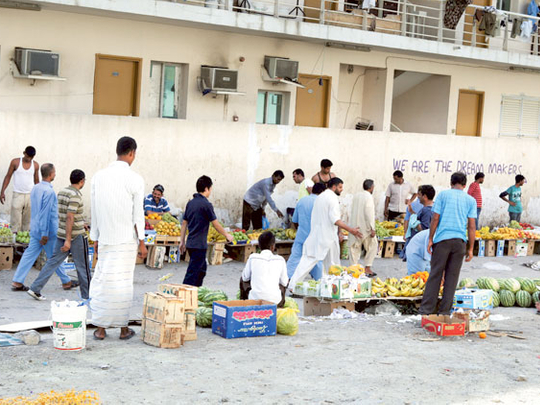
Dubai: Local markets are witnessing an increased number of vendors engaged in selling food products without obtaining the required permissions. Among the markets most commonly targeted by the illegal vendors are Al Quoz, Satwa and Naif.
More than 55 people have been caught this year during the month of Ramadan for selling food products without obtaining the required permissions, a senior Dubai Municipality official told Gulf News. While the food sold by them is cheaper than market prices, it could be highly unsafe to consume, the official said.
Those engaged in the activity were issued a warning.
“Such activity increases a lot during Ramadan. We have been actively conducting inspections in areas like Al Quoz, Satwa and Naif where we found these people selling samosas, pakodas, kaboos and foodstuff without permission. During the holy month, they think they can make good money as demand rises and, hence, engage in selling. Within this month we caught some 55 people though we did not impose fines right away because we want them to understand the seriousness of the issue and not adopt improper ways to do things. The fine starts from Dh500 but our aim is not to fine but to prevent such activities,” said Khalid Suletin, Head of the Environment Emergency Department of Dubai Municipality.
The month of Ramadan is considered a lucrative opportunity by many who engage in selling products, particularly food items. As the food items sold by these vendors are much cheaper than market rates, they manage to finish their sales rapidly in the evening. The most commonly sold items are foodstuff which is easy to carry such as samosas, pakodas, rotis and kaboos, apart from fruits and vegetables.
“I do not know where these watermelons have come from but they are quite cheap, I will not be able to afford it from a supermarket,” said a blue collar worker in Al Quoz.
Most of these vendors are small shop owners or individuals wanting to make some extra money due to high demand at this time of the year. However, Suletin pointed out as they do not really care about the quality of the food that they sell, it could be dangerous to eat the food they sell.
“Probably they make it at home or somewhere in the morning and come to sell it in the evening. They would not check if the food item is spoilt or is in a condition good enough to eat. We have found that sometimes the fruits and vegetables they sell are rotten,” he said.












